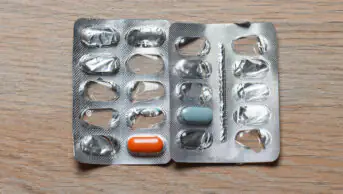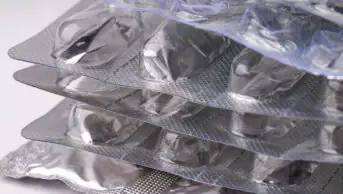
Shutterstock.com
Plans to alter the management of drugs supply in the case of a no-deal Brexit could make it possible to sanction medicines supply to patients in non-pharmacy locations, in the absence of any pharmacist input or usual safeguards, the Pharmacists’ Defence Association (PDA) has warned.
In December 2018, prompted by preparations for Brexit, the Department of Health and Social Care (DHSC) launched a consultation on enabling ministers to alter the Human Medicines Regulations 2012 to issue a “serious shortage protocol” in case of a national shortage.
Such a protocol would enable community pharmacists and other dispensers to dispense in accordance with the protocol rather than the prescription without having to contact a patient’s GP, including substituting medicines.
The government is also proposing that ministers should be able to continue to make changes to the Human Medicines Regulation 2012 in relation to serious shortages caused by the UK’s exit from the EU.
But the PDA has expressed concerns that the changes in legislation could “pose a risk to patient safety” and would “open the door” to governmental interference in medicines supply.
It also said that it would be time consuming for frontline staff to explain to patients why their medication has been changed if a medicine substitution is needed and that pharmacists would need to liaise with GPs about the changes to ensure continuity of care.
“We were concerned by the government’s view that no such pharmacist/GP liaison would be required and that, as a result, the changes would amount to a ‘positive impact’,” said the PDA in its response.
The PDA also highlighted that the government had “overlooked” the fact that other areas of legislation would need to be amended — namely, the Human Medicines Regulations 2012 Section 17 and the Medicines Act 1968 Section 64 — in order to make it lawful for a pharmacist to substitute a medicine.
It recommended that the government “ensure that safeguards are in place to prevent inappropriate use of serious shortage protocols for factors unrelated to EU withdrawal”.
A spokesperson for the DHSC said that it was currently reviewing the responses to the consultation and that any protocol would be developed and signed off by “highly specialised clinicians” to ensure the system is “robust and safe”.
“In the event of a shortage of any medicine it’s vital that patients continue to receive the high level of treatment they expect,” they said.
“These are sensible proposals that should reduce the time taken for alternatives to be provided to patients and make it easier for clinicians to deliver the appropriate treatment.”
The DHSC also said that, for a number of patients, including those with epilepsy, a serious shortage protocol would not be appropriate and, as a result, these individuals would not be affected by any changes to legislation.


